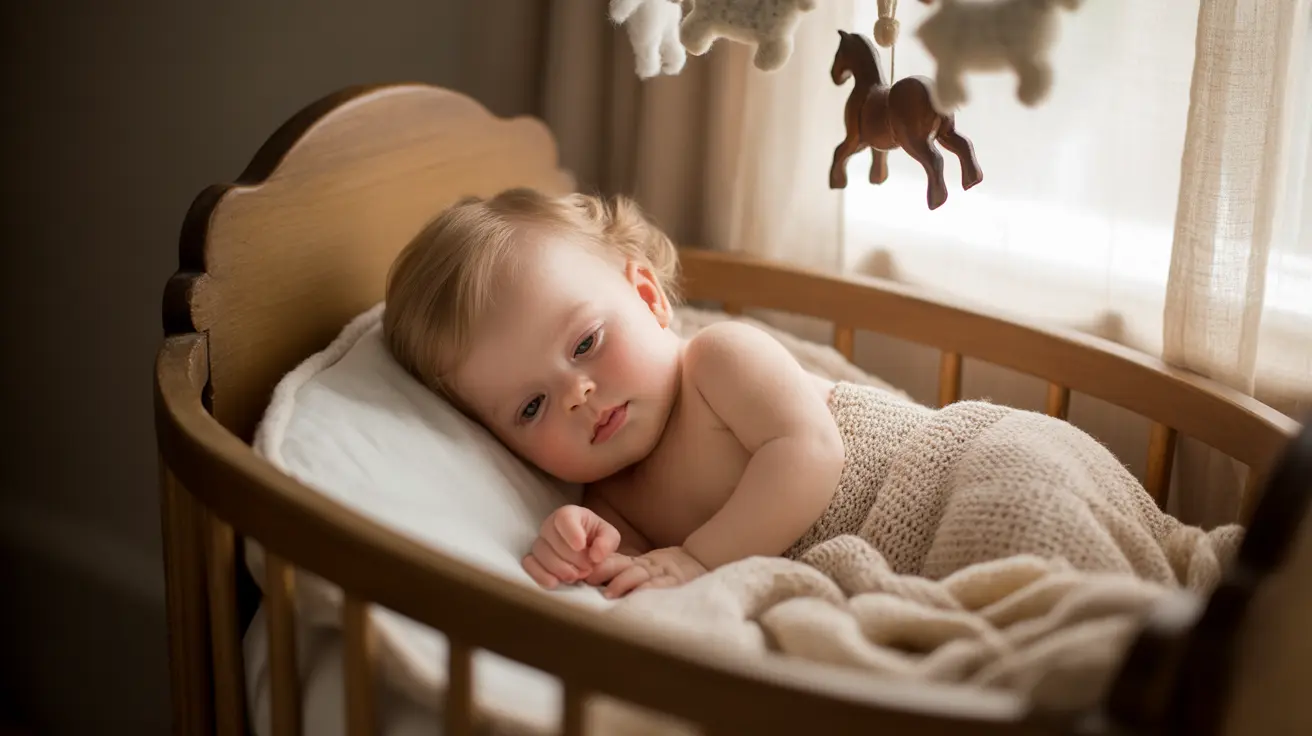Discovering your baby sleeping with their eyes open can be an unsettling experience for many parents. This phenomenon, while sometimes concerning to observe, is actually quite common in infants and young children. Understanding why it happens and when to be concerned can help ease parental worries and ensure proper monitoring of your baby's sleep habits.
This comprehensive guide will explore the reasons behind this sleep behavior, its potential impacts, and when medical attention might be necessary. We'll also provide practical advice for parents dealing with this situation.
Understanding Why Babies Sleep with Open Eyes
When babies sleep with their eyes partially or fully open, they're experiencing a condition known as nocturnal lagophthalmos. This occurrence is particularly common in infants and young children, affecting up to 20% of babies during their early months of life.
The primary reasons for this phenomenon include:
- Developing sleep cycles
- Immature nervous system
- Genetic predisposition
- REM (Rapid Eye Movement) sleep patterns
The Science Behind Open-Eye Sleep
During sleep, most people's eyes remain closed due to a natural reflex controlled by the facial nerves. However, in babies, this reflex mechanism is still developing, which can result in partial or complete eye opening during sleep.
REM Sleep and Eye Movement
Babies spend significantly more time in REM sleep compared to adults. During this sleep phase, their eyes may move beneath their eyelids and sometimes appear partially open. This is a normal part of infant sleep patterns and typically resolves as their nervous system matures.
Potential Health Implications
While sleeping with open eyes is generally harmless, parents should be aware of potential effects on their baby's eye health:
- Dry eyes
- Minor irritation
- Temporary redness
- Excessive tearing upon waking
Protective Measures
To help protect your baby's eyes during sleep, consider these preventive steps:
- Maintain appropriate room humidity
- Ensure proper air circulation
- Use a humidifier if necessary
- Position the crib away from direct air currents
When to Seek Medical Attention
While usually benign, certain situations warrant consultation with a healthcare provider:
- Persistent eye irritation
- Excessive tearing or discharge
- Signs of discomfort upon waking
- Associated developmental concerns
Frequently Asked Questions
Is it normal for babies to sleep with their eyes open?
Yes, it's quite normal for babies to sleep with their eyes partially or fully open. This behavior is common in infants and typically resolves as their nervous system develops.
Why do some babies sleep with their eyes partially or fully open?
Babies may sleep with open eyes due to their developing nervous system, immature sleep patterns, and high proportion of REM sleep. Some cases may also have a genetic component, as this trait can run in families.
Can sleeping with eyes open harm my baby or cause eye problems?
Generally, sleeping with open eyes doesn't cause long-term harm. However, it may lead to temporary eye dryness or irritation. Using a humidifier and maintaining proper room moisture can help prevent these minor issues.
How can I help my baby sleep with their eyes fully closed?
While you can't force your baby's eyes to stay closed during sleep, you can create optimal conditions by maintaining proper room humidity, ensuring comfortable temperature, and establishing a consistent bedtime routine.
When should I be concerned about my baby sleeping with their eyes open and see a doctor?
Consult a healthcare provider if you notice persistent eye irritation, unusual discharge, signs of discomfort, or if the condition persists well into toddlerhood and causes concern. Also seek medical attention if it's accompanied by other developmental issues.




